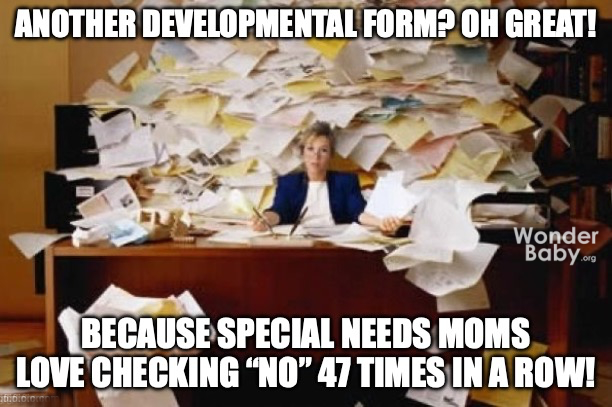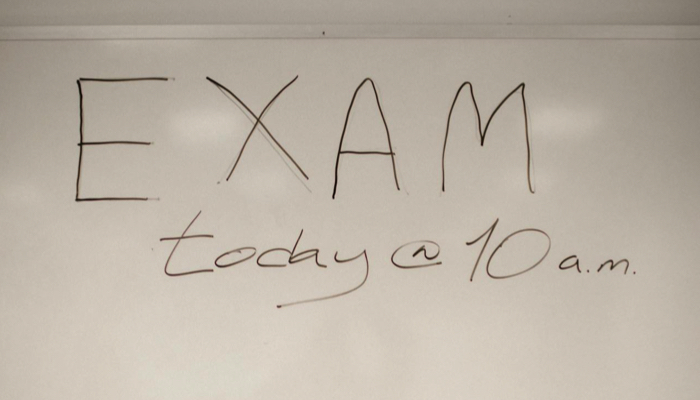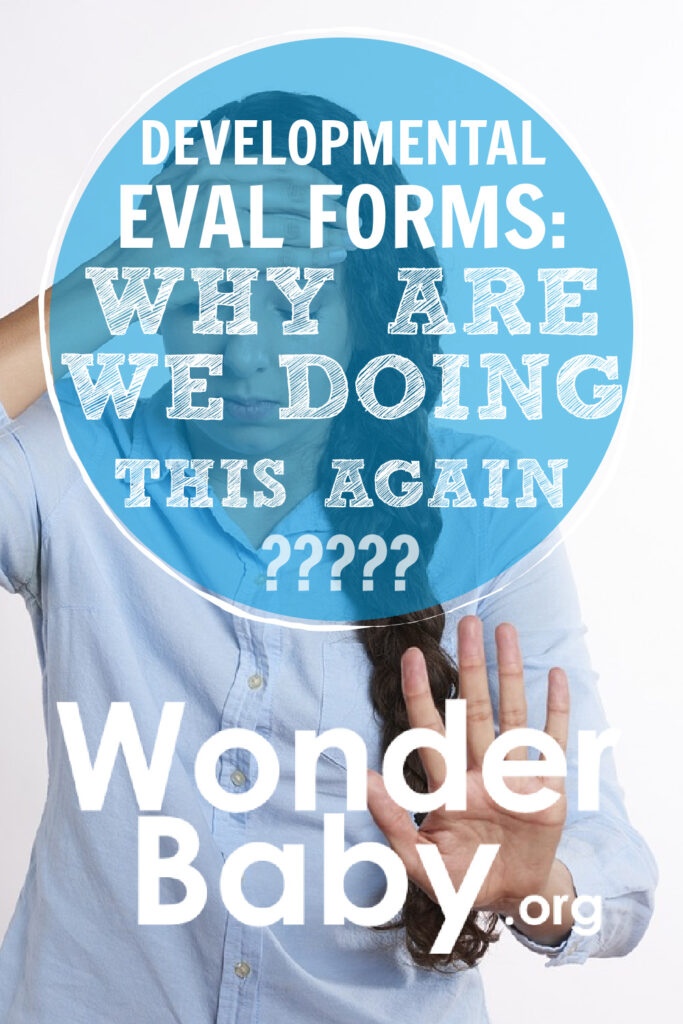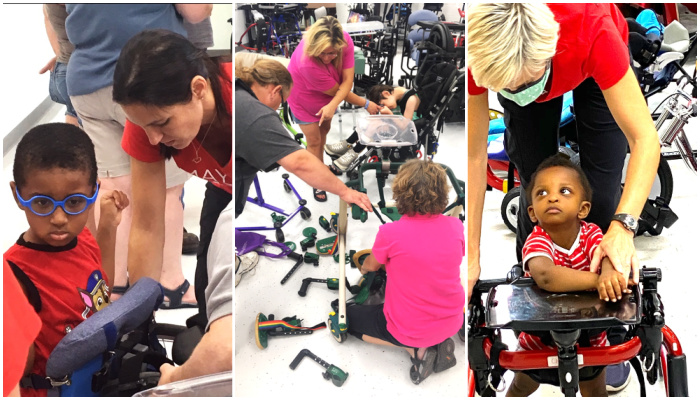Developmental Evaluation Forms: Why Are We Doing This Again???

Ah, yes. It’s that time again — another developmental evaluation form has landed in my lap. The questions are all too familiar, like a greatest hits album of tasks my child can’t do.
- Can your child tie their shoes?
- Can they walk up three steps?
- Can they respond to a simple one-step command?
And just like that, I get to check “no” over and over again.
Meanwhile, I’m over here celebrating because my kid made it through the day without needing rescue epilepsy meds. It’s not that I’m not proud of my son – of course I am – but these forms really seem designed to highlight everything he isn’t doing. What’s the prize for filling this out? A gold star for the most “no” answers?

What’s more, it’s not like I only see these forms once a year. Oh no, they follow me everywhere: doctor’s offices, schools, therapy sessions. It’s like a recurring nightmare I can’t wake up from, except instead of scary clowns, it’s a list of developmentally appropriate milestones. Each time, it’s a fresh opportunity to be reminded that my child isn’t meeting the world’s expectations.
Why Developmental Forms Feel Like a Test You Didn’t Study For

Okay, let’s give these forms some credit. They mean well. They’re supposed to help the doctors, teachers, and therapists develop a clear picture of where your child is developmentally. But let’s be honest: it feels less like an “assessment,” and more like an exam you didn’t know you had, and now you’re staring at the questions like, “Wait, was I supposed to teach my child how to dress themselves by now? Did I miss that memo?”
These forms seem laser-focused on all the things our kids aren’t doing, leaving us feeling like we’re failing some kind of parenting pop quiz. One mom I know joked that she started answering, “Nope, but he can escape from a five-point harness like Houdini!” just to keep herself sane. Another parent told me she stared at the question, “Does your child respond to one-step commands?” and wondered, “Does ignoring me entirely count as a response?” Because if so, nailed it!
It’s easy to feel like you’re the only one flunking this parenting test but trust me, you’re not alone. Every parent in the special needs boat has had that sinking feeling, watching as the “no” boxes pile up and wondering if anyone else’s kid is secretly building Lego skyscrapers while reciting Shakespeare. Spoiler alert: They’re not. We’re all just trying to survive these forms with a shred of our dignity intact, even if it means laughing through the frustration.
Coping With These Forms Without Losing Your Mind (Too Much)

First things first: Don’t do this alone. Seriously. Grab a friend, a spouse, or even a pet, anyone who can sit with you as a buffer between you and the dreaded “no” boxes. If you’ve got a support person or advocate, even better. They can help you through the questions that make you want to throw the form out the window.
Another tip? Take breaks. Like, frequent breaks. Fill out a couple of those joy-crushing questions, then step away, grab a snack, watch a cat video, whatever it takes to reset your sanity. This isn’t a race. No one’s giving out medals for finishing these forms in one go, so pace yourself. Think of it as a marathon, not a sprint.
When you finally finish, it’s time to balance the scales. Grab a sheet of paper and write down everything your child can do, starting with the fun, quirky, and amazing things that never seem to make it onto the form. Can your child laugh so hard they snort? Put that down. Can they find a way to communicate exactly what they want without using words? That’s a win! The form doesn’t define your child’s worth. Your child is awesome just the way they are, and no form in the world can change that.
At the end of the day, these forms don’t tell the whole story. Success isn’t about ticking off milestones on someone else’s checklist. It’s about recognizing and celebrating your child’s unique strengths, whether they’re mastering the art of getting everyone to smile or finding joy in the little things that others might overlook. Your child’s journey may not fit neatly into boxes, but that’s okay because they’re writing their own unique story.
So when the forms are done remember this: Your love, your patience, and your dedication are what truly matter. You’re the expert on your child, and no form can measure the depth of your connection with them. Take a deep breath, hold on to hope, and keep celebrating everything that makes your child wonderfully, uniquely them.

Related Posts

Special Needs
5 Spring Cleaning Tips for Families of Children with Disabilities
Spring cleaning is an opportunity to create a more accessible, organized, and supportive space for your child with disabilities. Declutter, deep clean, and refresh!

Visual Impairment
The Gift of Understanding: How a Young Child Helps His Blind Father Navigate Life
When a parent is blind, it’s natural for people to wonder how their sighted child will adapt. Will they struggle to understand their parent’s needs? Will they feel burdened by...

Assistive Technology, Support
May We Help: Engineering Independence for People with Disabilities
May We Help is dedicated to designing and building custom solutions that help individuals of all ages achieve mobility, access, and independence, all at no cost.